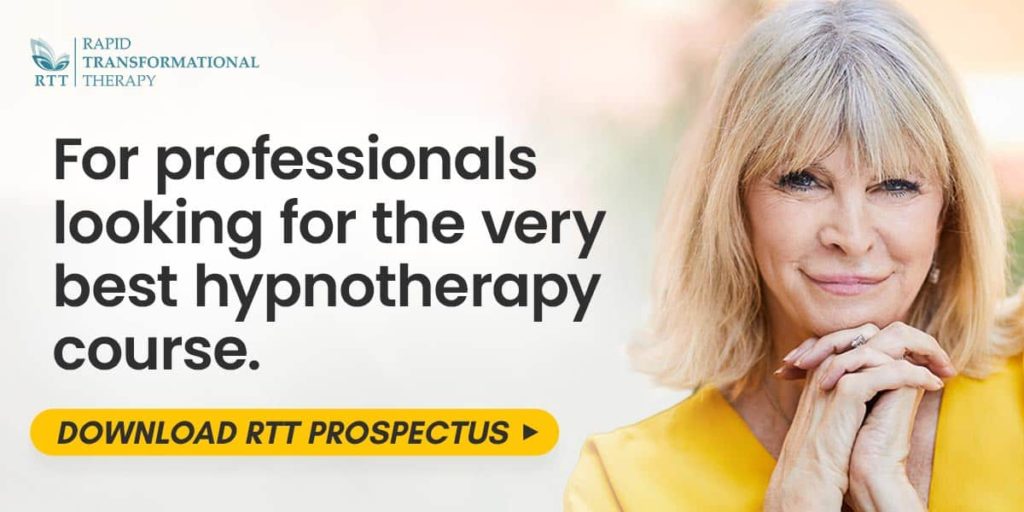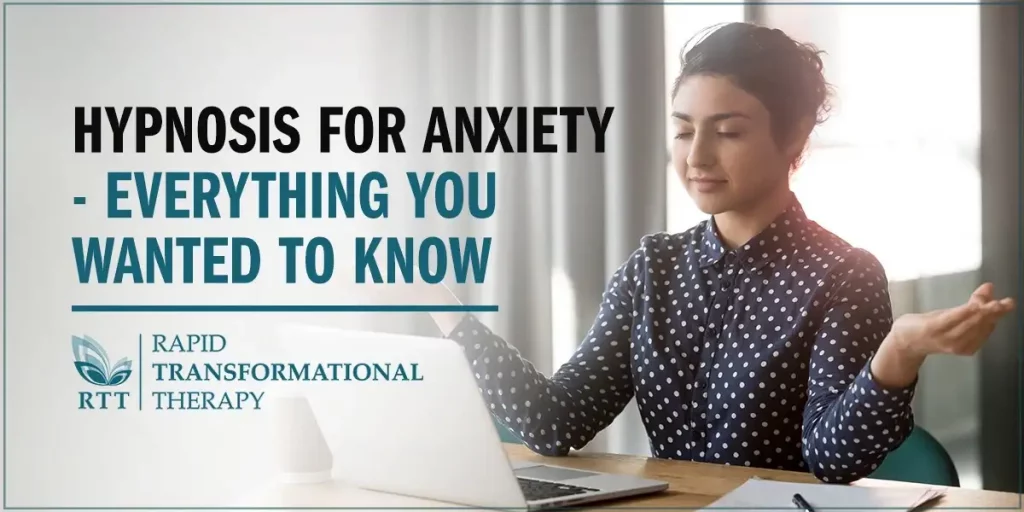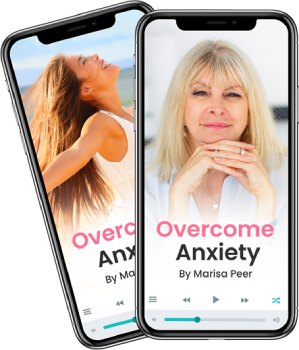Anxiety disorders affect millions of people each year and it is one of the most common mental disorders in the world.
You may not think of something like anxiety as a serious health condition, it can however have major negative effects both on your personal and work life.
There are various methods and tools for dealing with anxiety, you may have even tried a few, with some being more effective than others. Today we will discuss how hypnotherapy for anxiety and hypnosis for anxiety can help you manage and potentially even eliminate anxiety once and for all.
In this article, you will learn:
- What are the types of anxiety and how they can affect your life.
- What are the typical causes of anxiety and how to manage each.
- How hypnosis for anxiety works to resolve anxiety triggers.
- How to use hypnosis for anxiety to achieve an anxiety-free life.
- Managing anxiety self-hypnosis script.
Is Anxiety the World’s Silent Epidemic?
According to research by the Anxiety and Depression Association of America, anxiety disorders affect nearly 40 million adults in the U.S. alone. That is nearly 18% of the population.
Even though anxiety disorders are highly treatable, only 36.9% of people actually receive treatment. If not treated, anxiety disorders can be very serious and can contribute to other health issues as well.

Types of anxiety
We all feel anxious every now and then. Anxiety is a natural reaction of your mind and body when you are under stress or pressure. The everyday anxiety can be uncomfortable but this is something most of us simply learn to live with.
According to the Canadian Mental Health Association, anxiety is a normal reaction to many events that happen in life. It is a “fight or flight” response on the account. It acts as an internal warning system that alerts you to danger.
Most people can manage a normal amount of anxiety from things such as a pressuring deadline at work or going on a first date.
Happy events such as moving to a new home or planning a wedding can also leave you feeling anxious.
Sometimes anxiety can even be beneficial.
It can motivate to finish up a large project or prep for a test faster.
“Normal” anxiety is usually only related to specific situations or problems. It is a realistic response in proportion to the event.
In some cases, however, everyday anxiety can transform into some form of anxiety disorder. Such disorders can have major negative effects on your life.
Anxiety disorders are a group of mental illnesses that keep you from living your life with any kind of normalcy.
Anxiety disorders are wide-ranging. For example, you could have a panic disorder, social anxiety disorder or something known as a general anxiety disorder. Phobias are another type of anxiety disorder.
In such cases, your anxiety may crop up unexpectedly or for no apparent reason. You may also experience much stronger symptoms than ones of everyday anxiety and those feelings may be difficult to manage.
To understand how to treat your particular case of anxiety it is important to understand its underlying reasons and causes.

Causes of anxiety
Anxiety disorders can potentially develop from a complex set of risk factors including things like genetics, brain chemistry, life events or even personality.
Other risk factors for anxiety, in general, can include things such as stress at work or school, stress due to illness, financial stress or even drugs or alcohol. Emotional trauma also plays a big role in developing anxiety.
Are you anxious or depressed?

Anxiety and depression are two different medical conditions. However, their symptoms can overlap.
General symptoms of anxiety disorders are:
- Feeling stressed, tense and worried all the time.
- Racing or ruminating thoughts – living with constant nagging worry or anxiousness.
- Constantly mulling over what is going to happen in the future.
- Feeling painfully edgy – having a hard time concentrating or relaxing.
- Experiencing fear, panic or anxiety in situations where most people would not feel anxious or threatened.
- Experiencing sudden panic or anxiety attacks without an apparent trigger.
- Difficulty working, maintaining relationships or leaving the house.
General symptoms of depression are:
- Feeling sadness or hopelessness.
- Feeling a sense of despair.
- A rapid increase or decrease in appetite.
- Loss of interest in things you used to love to do.
- Low energy levels.
- Feeling overwhelmed by day-to-day tasks.
- Feeling overwhelmed with personal relationships essential to life.
The truth is, people with anxiety can develop depression and those with depression can develop anxiety.
Whatever your condition is, you might have tried managing the negative thoughts and emotions by yourself. Be it by taking medications, using relaxation techniques, or implementing regular exercise and a healthy diet. In each and every case, some things will be more helpful than others.
Most of these approaches alone, however, may not be able to resolve your issues completely, as many anxieties and depression triggers have deeper roots than just your lifestyle.
The way you perceive different situations can trigger negative emotions and feelings. In other words, your mind and body react negatively to certain situations because of the negative stories that play out in your mind.
If you want to resolve the underlying causes of anxiety and potentially eliminate it from your life forever hypnosis for anxiety can be the solution you are looking for.
What is Hypnosis For Anxiety and How Can it Help?

Hypnosis is a method of hypnotherapy that helps resolve multiple physical and mental issues including smoking addiction, weight loss, insomnia, and many more.
Previously hypnotherapy was considered an unconventional method of therapy. Today it has a lot of research backing it up and is becoming more mainstream by the day.
You can use hypnosis is an effective treatment option for guided relaxation, intense concentration, and focus to help you achieve a heightened state of awareness.
In this trance-like state, you are able to explore painful feelings, thoughts, and memories that might be hidden from your conscious thinking mind. You are then able to rewrite the negative stories with empowering ones. As a result, you will be able to perceive things differently in your everyday life.
Research reveals that hypnotherapy is a wonderful way to deal with phobias, substance abuse, eating disorders and even low self-esteem, all of which involve some kind of anxiety.
Reframing, ego reinforcement, age regression, parts therapy, metaphors, and anchors, are all methods and techniques used in hypnotherapy to help release tension and manage anxiety.
Does hypnosis really work for anxiety?
Researchers studying the effects of hypnosis and anxiety validate that hypnosis is an effective technique to relieve stress, fear, and anxiety.
One study done in 2016 involved scanning the brains of 57 people who were undergoing guided hypnosis sessions similar to what is used to clinically treat someone for anxiety, pain, or trauma.
Brain scans showed changes in the brain activity of those under hypnosis. The brain areas that lit up showed that participants experienced greater physical and emotional control and more focused attention. The participants also felt less self-conscious.
Another study revealed that self-hypnosis training was found to be a rapid, cost-effective, and safe alternative to medication for the treatment of anxiety-related conditions.
The study revealed that hypnosis was an effective treatment for anxiety associated with cancer, surgery, burns, and even medical and dental procedures so it can certainly be just as effective for managing everyday anxiety.

Hypnosis can also help reduce anxiety before surgery. One clinical study showed that women who went under hypnosis before breast cancer surgery experienced less pain, fatigue, and emotional stress. They also required less anesthetic during surgery.
Another study done with students who were taught self-hypnosis showed that hypnotherapy helped reduce anxiety and feelings of helplessness. The effects were greater than traditional relaxation techniques.
As you can see, there is plenty of evidence that hypnosis really does work when it comes to reducing stress and anxiety. It is especially important for those taking medications to manage their anxiety associated symptoms.
In contrast to medications, hypnosis has no side effects. It is also a much more cost-effective sustainable tool to help you manage your anxiety or even resolve your issues once and for all.
How is this possible? Let’s examine how hypnosis for anxiety works.
How does hypnosis work?
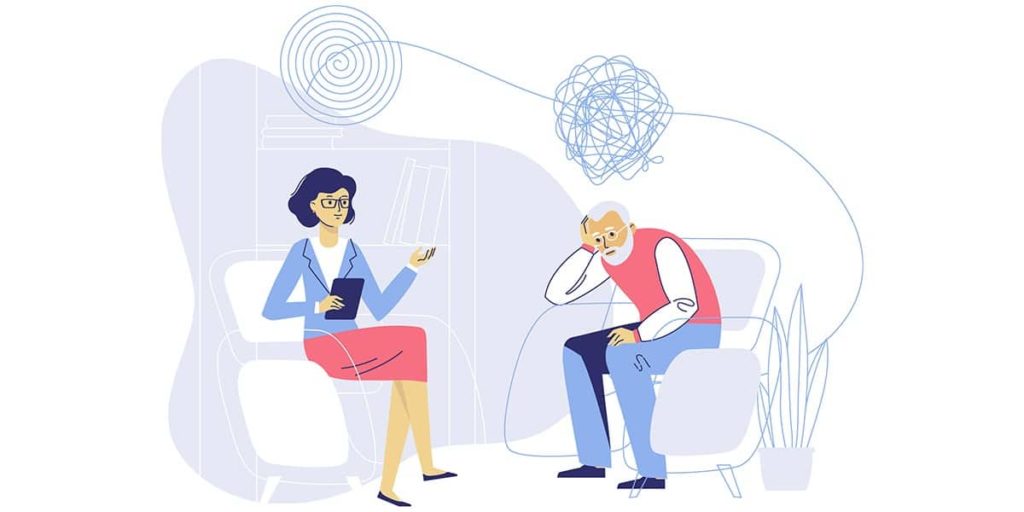
There are two main reasons why hypnosis works so well for anxiety:
Firstly, hypnosis helps you relax your mind and body, which can help boost your immune response.
Researchers at Gonzaga University found that hypnosis had a positive effect on the immune response as measured by B-cells and helper T-cells. The healthier your immune response is, the better equipped you are to manage anxiety and stress.
Once you learn how to consciously relax your mind and body during a hypnotherapy session, you will also be able to take this process and use it in your everyday life.
Secondly, hypnosis can help you address the underlying causes of your anxiety. Sometimes events that happened in your childhood or even years ago can still cause you to feel anxious.
Hypnosis can help you access those negative memories deep in the subconscious mind and reframe how you think about them. This helps you to rewire your brain to accept a more empowering perspective.
The more you work with your subconscious mind, the more your thoughts will change. Eventually, you will get to the point where your anxiety is easily managed.
What does this mean in practical terms?
Let’s say you experience anxiety when it comes to networking and meeting new people. It is possible that the memory of something as simple as a playmate making fun of you is still affecting you today. With hypnosis, you can easily confront that memory and move past it.
Anxiety may also be a learned or a conditioned response. If it is a learned response, it can be unlearned.
Let’s say you witnessed a terrible car crash and today you are terrified of driving. With hypnosis, using a technique such as systematic desensitization, you can gently work through that fear and calm that anxious response.
Are there any negative effects of hypnosis for anxiety?
Unlike medications, hypnosis does not really have any complicated side-effects, other than causing you to feel extremely relaxed while you are in the session, so you definitely do not want to listen to a recording while driving!
If you have a serious medical condition, like a heart condition or you experience seizures, you should always check in with your doctor before doing hypnosis, just to be safe.
The quality of hypnotherapists will also vary extensively, so you should always do proper research to choose a qualified hypnosis practitioner.
What are the best ways to use hypnosis for anxiety?
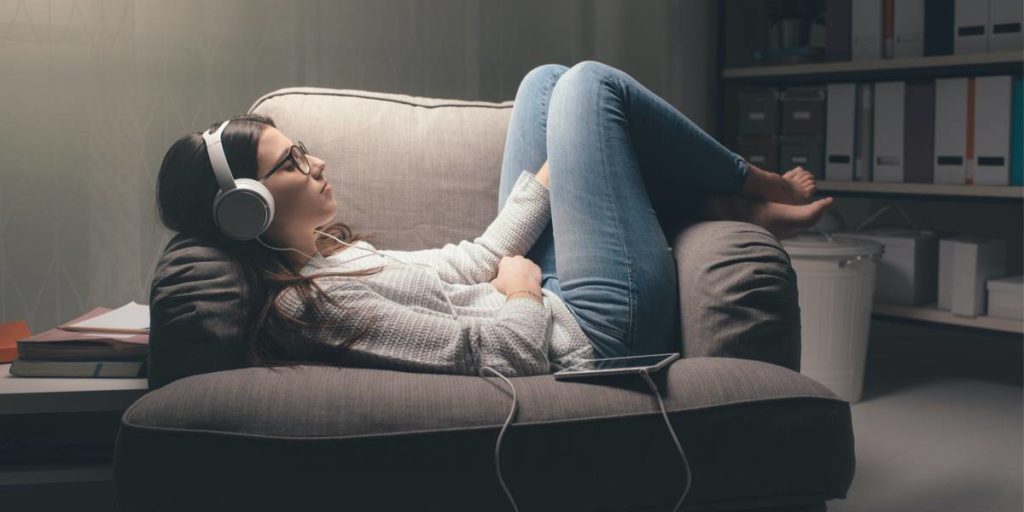
One of the best ways to use hypnosis therapy for anxiety is to simply give it a try. If you are trying to overcome some trauma on your own, hypnosis is a great cost-effective option to try out.
There are many ways you can use hypnosis:
- Work with a qualified certified hypnotherapist.
Working with a qualified hypnotherapist can help you receive custom-tailored sessions and recordings that are designed for your particular issues.
- Use a pre-recorded audio hypnosis for anxiety and hypnosis for depression.
If you choose a pre-recorded audio, you will be able to pick and choose from multiple sessions and topics. You can explore a self-hypnosis audio by internationally-renowned speaker, therapist, and bestselling author, Marisa Peer.
- Do a self-guided practice (see the script below).
You can start with an intro to hypnosis by doing a self-guided hypnosis session. See how you feel and what benefits you notice before moving on to more serious sessions. Self-hypnosis is a great tool to have in your self-development toolbox and it is also free!
How do I hypnotize myself for anxiety?
It is possible to use self-hypnosis in order to help manage your anxiety symptoms, and learn how to retrain your brain to welcome in calm, mindfulness, and peace, which will help whenever your anxious thoughts begin to overwhelm you. To self-hypnotize, you can follow a self-hypnosis script.
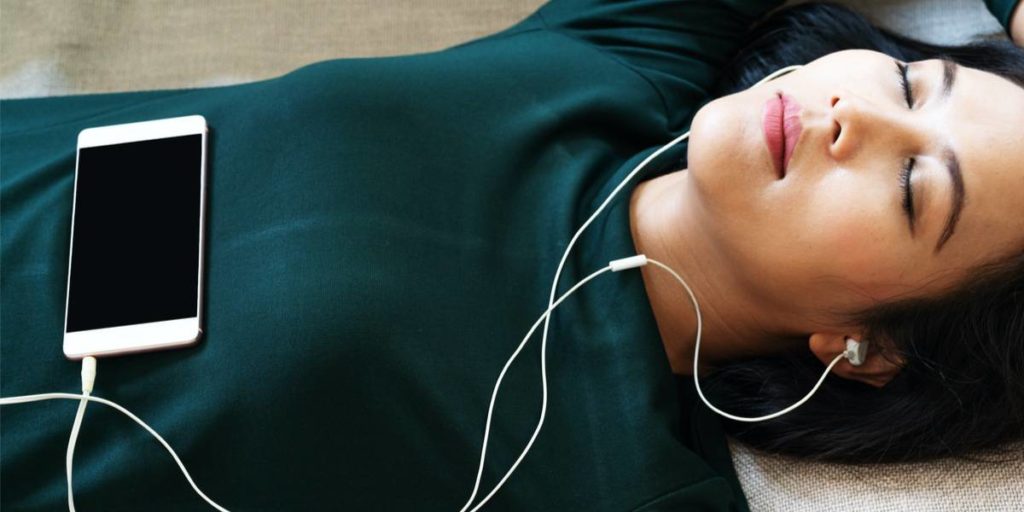
Managing Anxiety Self-Hypnosis Script
This self-guided session is recommended to do every day for a week before bedtime or in the morning before you start your day.
Begin by relaxing and getting into a comfortable position. Either read through this script out loud. Or read through the entire script first, close your eyes, and take yourself through the process once again in your mind.
Start by taking two or three really deep breaths. Allow your breath to calm and relax you.
Allow your mind and body to slow down, as though everything is in slow motion.
With every word you speak and every sound you make, you will feel more and more relaxed. Now, imagine yourself sitting on the sand in front of the ocean. Feel the soft sand between your toes and hear the waves gently lapping at the shore. Take in the environment and breathe in the fresh air.
Repeat in your mind, I am at peace, I am at peace.
Now imagine yourself walking along that beautiful beach.
As you walk, listen to the sounds of the waves hitting the shore. Smell the sea breeze as it touches your nose. Feel the warm sun on your face.
Allow the warm sun to ease away any tension or stress. Now count yourself backward from 5 to 1. As you count back, let your mind drift into a deep relaxing state.
Five, feeling calm and relaxed.
Four, moving down deeper and deeper.
Three, deeper still.
Two, descending ever deeper now and on the next number, you will drift into a very deep state of relaxation.
One, you are now in a very deep state of relaxation, and ready to make some amazing changes in your life.
Repeat again, I am at peace, I am at peace.
Now take a few moments to simply sit and enjoy the scenery. Imagine all of your problems just blowing away with the sea air. Be present in the moment and do not think about anything else.
Notice how your mind feels completely free and uncluttered. Enjoy watching the water and notice all of the different colors that make up the ocean.
Notice how stress and anxiety simply melt away.
As you rest and relax, you can also repeat some positive suggestions such as:
- I choose to feel relaxed and positive.
- I am at peace
- Every breath I take relaxes me.
- I am empowered.
- I easily let go of stress and anxiety.
- Challenges help me grow.
- I choose to be peaceful in the moment.
- My life is balanced and harmonious.
- I am an unlimited being.
- I am filled with peace, hope, and joy.
When you are done, bring yourself back to full waking consciousness by mentally counting up from 1 to 5.
If you would like to experience a more advanced version, you can listen to Perfect Relaxation every day for 21 days to rewire your thinking and powerfully transform your life.
How many hypnosis sessions are needed for anxiety?

The number of sessions you might need will vary depending upon the range and complexity of your problem. Simple issues might be taken care of in one or two sessions, while deep-seated issues and problems may take more time.
If you are ready for a significant change, try using Rapid Transformational Therapy® (RTT®), which can help you work through problems quickly and efficiently. It is a revolutionary method developed by the internationally-renowned therapist, Marisa Peer. This award-winning technique is based on 30 years of research and therapeutic experience that can help you solve problems in as little as one to three sessions.
Conclusion
Hypnosis can be an effective solution to treat anxiety and stress by going to the root of the issues, reframing negative stories and rewriting them with empowering ones. Positive suggestions help you focus on things in life that are going well, which helps shift focus from the negative to the positive.
Hypnosis can also help you train your mind to relax so that stressful situations do not bother you as much.
Hypnosis for anxiety works on subtle levels of the mind, helping reset the negative self-limiting thoughts to positive, uplifting ones.
If you would like to work on your specific needs with a certified professional, you can book a session with an RTT therapist.
You can also try Marisa Peer’s best-selling self-hypnosis for overcoming anxiety or hypnosis for depression audio courses, which will help you feel confident, motivated, lovable and fulfilled.
Finally, if you are interested in learning hypnosis to practice on yourself and help others, you can download this free RTT Course Prospectus on how RTT can become your new fulfilling career.
There is no time like the present to start making those changes to live a more peaceful life.
